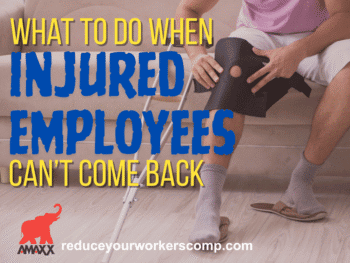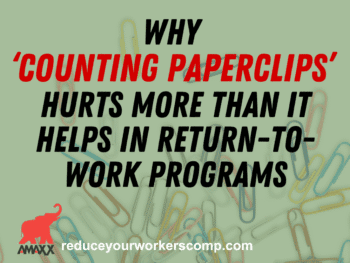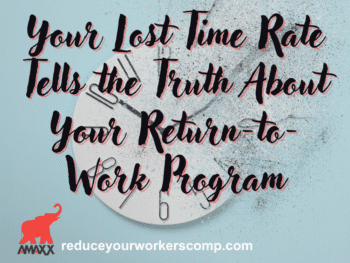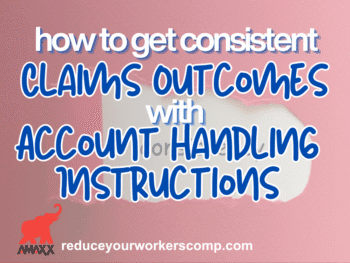According to a 2009 RIMS Benchmark Survey, only twenty-one% of employers get work restrictions on the FIRST medical visit. This "waiting" puts the employee in charge.
The problem usually almost always starts with a “lack of control,” something like this example…
In June, “Joe” brings in a disability note, a pre-printed form saying “totally incapacitated.”
There is no diagnosis, no prognosis, no treatment plan, no estimated RTW date, no indication of what the employee CAN do, not even a phone number to contact the doctor.
In December, “Joe” brings in another slip when he comes to the plant to pick up his Christmas bonus (a turkey) saying he will be out of work for another four months.
Too many claims that last too long are, in general, are the reason workers’ comp costs are high. THIS IS THE TOP REASON WORKERS COMP COSTS TOO MUCH. The root cause of this is that the employer is not in charge allowing the employee to be "in control" of the situation which has allowed the length of time out of work to become "disproportionate."
An employee is injured June 1, and healed by July 1, but doesn’t come back to work until Dec. 1.
Obviously, the time out of work is disproportionate to the duration of the disability. Do you use disability guidelines — learn what those are! We have some in Workers Comp Kit. www.WorkersCompKit.com
Most employers do not know how many employees are out of work, but they DO know how many vehicles are off the road, how many production lines are down, and how many flights are delayed. But, no one has focused on how many employees are out of work.
If you are a carrier, provide this information in a clear way to policyholders. If you are an employer, ask for this information. Require your carrier to track lost days accurately – days for which you pay lost wages. Make sure the lost days fields are mandatory. (workersxzcompxzkit)
Ask yourself: If someone came in your office tomorrow, could you tell him or her how many employees are out of work right now?
Podcast: KNOW the New OSHA Recordkeeping Rules — OR Risk Fines and Criminal Penalties. Click Here: http://www.workerscompkit.com/gallagher/podcast/Non_Compliance_with_Recordkeeping_Standards/
Do not use this information without independent verification. All state laws vary. You should consult with your insurance broker or agent about workers' comp issues.



























